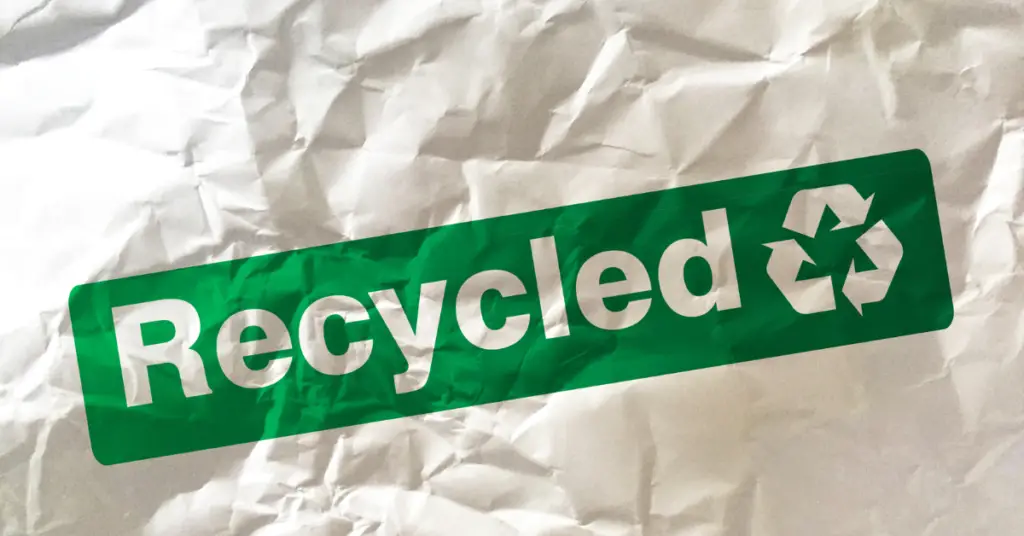Rainforests are beautiful habitats, characterized by high rainfall, and arr home to two-thirds of living animals and plants species on the earth and are the source of many of the earth’s natural herbal medicines.
Rainforests are also critical to our fight against global warming, as they absorb tremendous amounts of carbon dioxide. In fact, every 2.47 acres (one hectare) of rainforest absorb a ton of CO2 per year! And ancient forests (as opposed to new growth) are by far the most effective at processing CO2.
Tragically, forests are being harvested for paper and other products at an alarming rate. About half of mature tropical rainforests have been cleared, and if we continue harvesting trees at current rates, there will only be 10 percent remaining by 2030. If everyone in large cities could experience the beauty of the rainforests and witness the millions of rainforest trees being cut down to be turned into paper products, we would certainly take immediate steps towards topping this process.
The simplest and most effective action we can take right now is to purchase recycled paper products. Every time you buy a pound of recycled paper, you eliminate about four pounds of carbon dioxide from ever being produced, as recycled paper takes less energy to produce.
Recycled paper products can be found in nearly every store that sells paper. Office supply giants Staples and Office Depot sell their own brands of recycled paper containing 30 percent and 35 percent post-consumer recycled content, respectively.
You can also buy their 100 percent post-consumer recycled content paper—even better. Pre-consumer recycled content is waste from the manufacturing process of another product.
For example, an envelope manufacturer might recycle the clippings left over when envelopes are cut from paper. These clippings are now being used rather than thrown away.
Post-consumer recycled content is material with a past life such as a newspaper, magazine, office paper, packaging, paper cup, or paper plate. Using post-consumer paper waste closes the circle of recycling, reusing our resources and reducing our need to cut down more trees.
Remember: more trees means less carbon dioxide! And of course, less CO2 is synonymous with reduced global warming.
Supporting green-conscious companies like Staples and Office Depot, who purchase their paper products from suppliers committed to employing sustainable methods of harvesting, encourages other suppliers to follow suit in the green revolution.
Other environmentally aware companies include the following:
Bowater is one of the largest paper suppliers in the world and purchases more recycled tires and newspapers than almost any other company nationwide. Bowater has signed a covenant with the Southern U.S.forest protection group Dogwood Alliance to only purchase wood that was harvested from certified sustainable forests.
Potlatch harvests wood from more than a million acres of forestland in Arkansas and Idaho that are certified according to the rigorous standards of the Forest Stewardship Council (FSC).
Domtar is a forest products company striving to meet its goal for all of its suppliers to be certified to FSC or equivalent certification standards. The company obtained ISO14001 environmental certification (the internationally recognized standard for Environmental Management Systems) for its forestry management practices in more than 18 million acres of directly managed forest land.
Greener Printer, based in Berkeley, California, offers reprints on 100 percent recycled New Leaf paper stock with soy-based inks. GreenerPrinter ships its print jobs Climate Cool™, as certified by theClimate Neutral Network. This means that the climate emissions associated with shipping by truck or air freight are certified by an Environmental Review Panel to achieve a net-zero impact on the earth’s climate. This company is also a member of the Green Patriot™ Green100™.
New Leaf Paper provides high quality business paper, including the first coated paper made from 100 percent post-consumer waste available in the U.S.International Paper is a charter member of the EPA’s National Environmental Performance Track program. As one of the world’s largest paper and forest products company, International Paper is committed to sustainable forestry in the forests they manage.
Recycled office paper comprises only a portion of the recycled products wecan purchase. Buying recycled paper towels, facial tissue, and toilet paper also takes a huge chunk out of global warming greenhouse gases that would otherwise end up in our atmosphere.
If everyone in the U.S. replaced their non recycled paper products with the recycled equivalent, the earth would achieve a savings of 666,369 tons of greenhouse gases!
There are many sources for recycled paper products today, including private label brands such as 365 at Whole Foods Market and Earth First at Safeway; popular growing eco-brands like Seventh Generation and Planet, Inc.; and websites.
With so many options for buying recycled paper products today and our rainforests and planet at stake, we can’t afford not to make the switch to recycled paper.

Erzsebet Frey (Eli Frey) is an ecologist and online entrepreneur with a Master of Science in Ecology from the University of Belgrade. Originally from Serbia, she has lived in Sri Lanka since 2017. Eli has worked internationally in countries like Oman, Brazil, Germany, and Sri Lanka. In 2018, she expanded into SEO and blogging, completing courses from UC Davis and Edinburgh. Eli has founded multiple websites focused on biology, ecology, environmental science, sustainable and simple living, and outdoor activities. She enjoys creating nature and simple living videos on YouTube and participates in speleology, diving, and hiking.

